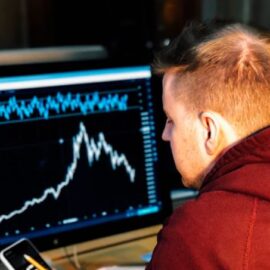
This is a free excerpt from one of Shortform’s Articles. We give you all the important information you need to know about current events and more.
Don't miss out on the whole story. Sign up for a free trial here .
What is the Baby Boomer retirement crisis? How will it affect the economy and society at large?
Economists have found that the U.S. labor shortage is mostly the result of the ongoing Baby Boomer retirement crisis that’s taken hold since the pandemic began. Their exodus from the workforce may tank the stock market, drag down economic growth, and push up inflation.
Read on to learn about the host of problems connected to the Baby Boomer retirement crisis.
The Baby Boomer Retirement Crisis Is Here
The U.S. employment report released earlier this month reveals strength in the jobs market but also ongoing weakness in the labor supply. While hiring rose sharply, sending the unemployment rate down to 3.4%—the lowest it’s been since 1969—the overall labor force participation rate, at 62.4%, remains lower than its pre-pandemic level (63.3%). One factor explains more of this shortfall than any other: the Baby Boomer retirement crisis, which accounts for a full 2 million of the missing workers.
In this article, we’ll explain the origins of the Baby Boomer retirement crisis and the widespread consequences to the U.S. economy and society at large.
The “Great Retirement” Trend
When the pandemic hit, millions of workers lost their jobs or left them because of illness, childcare difficulties, or the need to care for ailing family members. Among those aged 18 to 64, the labor force participation rate has largely rebounded. But for workers aged 65 and older, the participation rate remains far lower than its pre-2020 levels.
This is because many Boomers who left their jobs during the pandemic decided to retire earlier than they otherwise would have, making their departure from the workforce permanent. The Federal Reserve estimates that retirements are currently 1.5% higher than pre-pandemic levels, and of those, more than half are considered “excess retirements,” or those who would not have retired if not for the pandemic. They estimate that this Baby Boomer retirement crisis accounts for almost all of the slump in the labor force participation rate.
Impact on the Stock Market
Some economists predict that the crisis of Baby Boomer retirements will trigger a decade-long slump in stock prices as Boomers, who own 56% of all stocks, sell off their holdings to meet their daily expenses.
However, most economists don’t anticipate this scenario: If Boomers all take their investments out at once, stocks would surely suffer from the sudden hit, but a mass exodus is unlikely. With life expectancies lengthening, retirees are likely to pace their withdrawals so that they don’t run out of funds. In addition, many aren’t planning to withdraw all their investments anyway—they’re aiming to pass their wealth down to their kids.
And further, the Boomers who own stocks are generally wealthy and won’t need to cash out their investments to meet their daily needs. A full 96% of all stocks owned by the Boomer generation are owned by the top 20% of investors.
Impact on Economic Growth and Inflation
The coming wave of retirements may not bring down the stock market, but the Baby Boomer retirement crisis does threaten to drag down economic growth and push up inflation.
Economic growth will suffer if businesses don’t have enough workers to expand their operations—and if overall demand for goods decreases as retirees slow their consumer spending.
Inflation will be affected by two main factors. First, a tighter labor market means higher wages, the cost of which businesses will pass on to consumers through higher prices (they’re already doing so).
And second, such a large number of retirements may shift the balance between supply and demand in the overall economy. Even if Boomers slow their consumer spending, they’re likely to still spend quite a bit; many of them are flush with savings they built up over their careers and which were boosted during the pandemic by the robust stock market and stimulus payments. Should continued demand bump up against reduced production—because of overall slower growth prompted by fewer workers—prices will rise.
Long-Term Trends
The current Baby Boomer retirement crisis portends longer-term trends toward a tighter labor market. Boomers currently account for 25% of all U.S. workers and their exodus from the workforce will be felt for years. Down the road, a shrinking working population will pose continued problems for the global economy—the current departures of the Boomers promise to be just the start.

Want to fast-track your learning? With Shortform, you’ll gain insights you won't find anywhere else .
Here's what you’ll get when you sign up for Shortform :
- Complicated ideas explained in simple and concise ways
- Smart analysis that connects what you’re reading to other key concepts
- Writing with zero fluff because we know how important your time is






